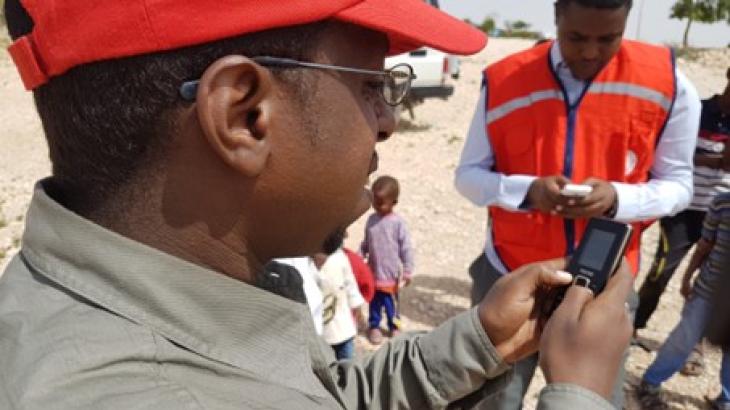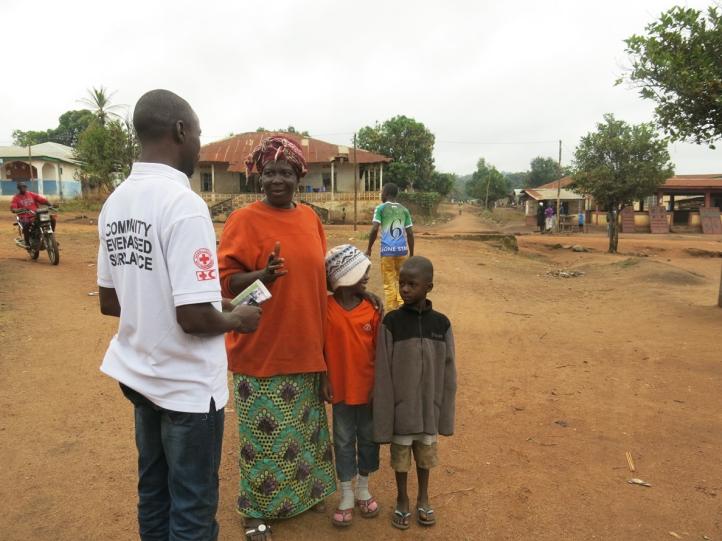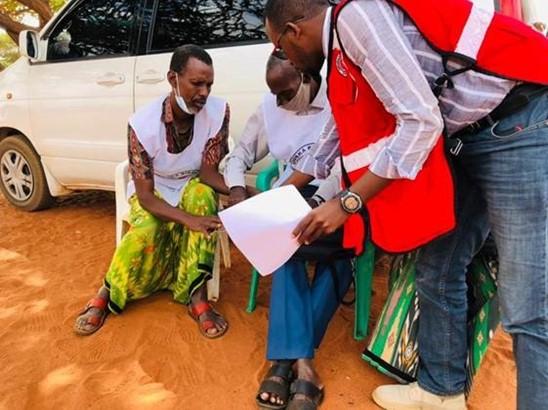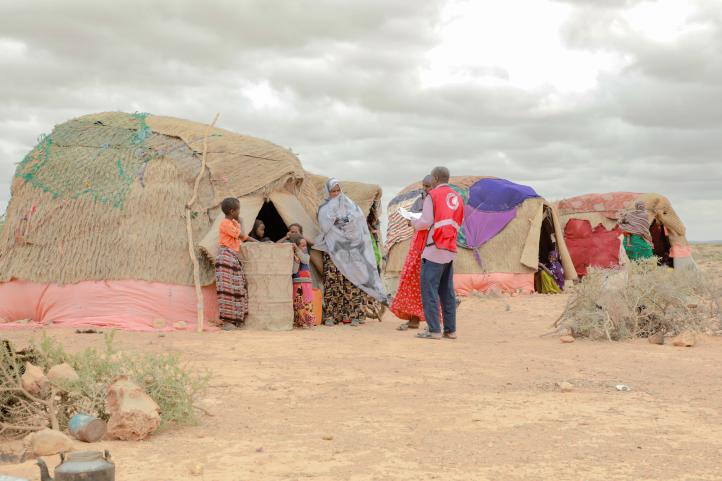Dates of implementation: SRCS started CBS in 2018
Setting: Rural / Towns/ Nomadic communities
CBS context: Preparedness (previously emergency)
Data collection system: Nyss
In Somalia, the access to health care is poor, and long-term conflict has further deteriorated the health system’s ability to detect and respond to outbreaks. Somali Red Crescent Society (SRCS), together with Partner National Societies (PNSs), the International Federation of Red Cross and Red Crescent Societies (IFRC) and the International Committee of the Red Cross (ICRC) are working to help the victims of conflict and natural disasters, providing emergency assistance and supporting the health care system. In Somalia, where the surveillance capacities of the health care system are challenged by unrest, limited infrastructure and access, providing early warning systems at community level is key to limiting the spread of disease. Without CBS, potential cases could go undetected.
More information on the different projects can be found in the sections below.
SRCS Project in Somaliland
The regions in Somaliland have faced repeated disease outbreaks in recent years, including cholera, measles, meningococcal meningitis, typhoid, pneumonia and recently, the COVID-19 pandemic. SRCS branches in Somaliland first implemented CBS in May 2018 to enable early detection and response to possible future outbreaks, with the objective of limiting the extent of the outbreaks. Trained volunteers have been reporting on selected health risks such as, diarrhoeal disease, fever and rash, acute malnutrition, coughs and difficulty breathing, and clusters of unusual illnesses or deaths in people. More recently, fever and body pain were added to account for the newly emerging disease of dengue in Somaliland.
We have seen several successes achieved through CBS in Somaliland. The first COVID-19 case in Somaliland was detected through CBS and reported through the Nyss platform, and several other infectious diseases were detected (e.g., measles, ADD, dengue, whooping cough) which prevented large scale outbreaks. Meanwhile, CBS is implemented in all six regions of Somaliland: Togdheer, Awdal, Sanaag, Maroodihje, Sahil and Sool. In selected locations, CBS activities were expanded with community case management activities for hard-to-reach areas.
SRCS is has been collaborating with the Ministry of Health Departments (MoHD) on the CBS data integration into the national surveillance system DHIS2. h areas.
In June 2020, SRCS, with the support of ICRC and technical support from NorCross, started a CBS project using Nyss as part of their emergency response to the Covid-19 pandemic in Galgaduud, Hiran, Middle Shabelle, Lower Shabelle, Banadir, Bay, Bakol, Gedoand Lower Jubba regions. This Covid-19 CBS project links into the existing contact tracing activities, and forms part of the larger work to limit community transmission of the virus whilst supporting the health care system in Somalia. When the Covid-19 pandemic spread to Somalia, the country was also hit by severe floods following heavy rains. In order to respond to this double threat, SRCS and ICRC quickly adapted their CBS Covid-19 response to also include reporting on diarrhoeal diseases. In some camp settings, the team included reporting on potential measles and other unusual events as well.
Volunteers were trained and reported in real time by sending an SMS to Nyss when they witness a health risk. When a pre-established threshold of reports is reached, an automatic alert is sent through Nyss to health authorities and key ICRC staff. With this early warning, they could rapidly initiate a response and adapt the community activities to limit the spread. The volunteers have initiated health promotion messages in the affected communities. After some months of implementation, part of the CBS activities were handed over to community health committees (CHC) to ensure sustainability of the activities. SRCS and CHC volunteers are working hand in hand to detect health risks in the covered villages.
SRCS Project in Puntland
At the beginning of November 2020, the Ministry of Health of Puntland State of Somalia gave their approval to start CBS in Mudug, Nugal and Bari regions. The SRCS team conducted a CBS feasibility assessment in the Mudug region. CBS was integrated into a comprehensive Community Health Project which has been implemented by SRCS in the region.
Norwegian Red Cross has supported SRCS to develop the CBS protocol and conducted the trainings of trainers. Since May 2021, reports on signs and symptoms related to the identified priority diseases such as Cholera, Measles, Dengue, Polio, and Covid-19 have been sent to the Nyss platform. As well, to monitor for other potential health risks, clusters of unusual illnesses or deaths have also been included in CBS.
The collaboration on potential and confirmed detected outbreaks by CBS between Ministry of Health (MoH) and SRCS has been very successful. Joint vaccination campaigns and other epidemic emergency responses were conducted. See success stories under news section.
SRCS is preparing the CBS data integration into the national surveillance system using DHIS2.




